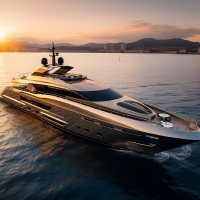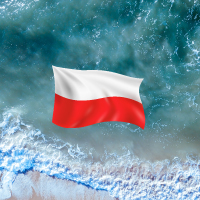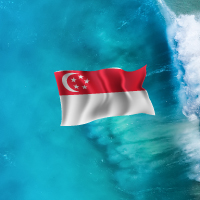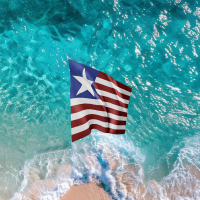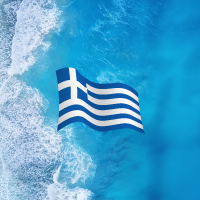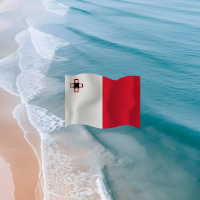
Recommended contact person
The shipping industry, responsible for transporting around 90% of the world’s goods, operates under a complex network of regulations designed to ensure safety, environmental protection, and fair labor practices. Two of the most prominent global organizations that govern the maritime sector are the International Maritime Organization (IMO) and the International Labour Organization (ILO). Together, they set and enforce key regulations to ensure vessels are operating safely, humanely, and sustainably on international waters.
In this article, we will take a detailed look at both organizations, how they work, their key requirements, and what happens if ships fail to comply with their standards. We will also explore whom these regulations apply to, what kind of penalties are imposed for non-compliance, and the broader implications for the global shipping industry.
The International Maritime Organization (IMO)
Overview of the IMO
The International Maritime Organization (IMO) is a specialized agency of the United Nations, established in 1948 with the mission to regulate shipping. Its main focus is ensuring safe, secure, and efficient shipping while reducing the industry’s impact on the environment. The IMO develops international treaties, codes, and guidelines that all member states must implement into their national maritime regulations.
The IMO’s headquarters are in London, and its membership includes 175 countries, representing virtually every maritime nation in the world. The IMO develops its regulations in collaboration with governments, shipping companies, port authorities, and maritime experts.
These regulations cover a wide range of topics, including:
- Ship safety
- Pollution prevention
- Security measures
- Crew qualifications
- Accident response procedures
Cyprus is a member of the IMO since 1973 and plays an active role in the organization’s activities. The country has a significant maritime presence, being one of the largest ship registries in the European Union and globally. Cyprus also participates in the IMO’s decision-making processes and contributes to the development of global maritime policies and standards. Its membership is particularly important given its strategic location in the Mediterranean and its status as a major flag state for both commercial ships and yachts.
Key IMO Conventions
Some of the IMO’s most important conventions include:
- Safety of Life at Sea (SOLAS): The SOLAS convention, first adopted in 1914 after the Titanic disaster, sets minimum safety standards for the construction, equipment, and operation of ships. It is one of the most critical conventions to which almost every seafaring country adheres.
- International Convention for the Prevention of Pollution from Ships (MARPOL): MARPOL is designed to minimize marine pollution from ships due to operational or accidental causes. It covers everything from oil spills to the discharge of garbage, sewage, and harmful substances.
- International Convention on Standards of Training, Certification, and Watchkeeping for Seafarers (STCW): This convention sets minimum qualifications for seafarers, ensuring that all crew members have the necessary training, experience, and knowledge to safely operate a ship.
How the IMO Works
The IMO works through a collaborative process that begins with the development of regulations in committees composed of member state representatives. After discussions and agreements, conventions are adopted and member states are required to implement them into their national laws. Although the IMO sets international standards, enforcement is done by each flag state, i.e. the country under whose laws the ship is registered.
The IMO also conducts audits of member states to assess their implementation of these international conventions.
What Happens if a Ship is Not IMO-Compliant?
Non-compliance with IMO regulations can result in several consequences. Ships are subject to inspections by port state control (PSC) authorities in any country they enter. If a ship is found to be non-compliant, it may be detained, prevented from sailing, or fined. Additionally, non-compliance can lead to:
- Increased insurance premiums: Vessels that fail to meet safety or environmental standards can face higher insurance costs.
- Loss of business: Cargo owners and charterers may avoid doing business with non-compliant ships due to the risks involved.
- Blacklisting: Ships that repeatedly fail inspections or violate conventions may be blacklisted, making it difficult to find work or docking opportunities in key ports.
For example, if a ship fails to comply with MARPOL standards and is found discharging pollutants into the sea, it could be heavily fined, detained, or even banned from operating in certain regions.
Who Does the IMO Apply To?
The IMO’s conventions apply to:
- All ships flying the flag of a member state, regardless of whether the ship is operating in international waters or within a national jurisdiction.
- Shipowners and operators, who are responsible for ensuring that their vessels meet IMO requirements.
- Crew members, who must meet the standards set under the STCW convention to be certified for work on seagoing vessels.
The International Labour Organization (ILO)
Overview of the ILO
The International Labour Organization (ILO), established in 1919, is the only tripartite United Nations agency that brings together governments, employers, and workers to set labor standards and develop policies promoting fair and decent work conditions. The ILO’s mandate spans all industries, including the maritime sector. In the shipping world, the ILO is particularly known for its Maritime Labour Convention (MLC), often referred to as the “Seafarers’ Bill of Rights”.
The ILO, headquartered in Geneva, Switzerland, sets labor standards that member states must implement in their national legislation. These standards aim to protect the rights of workers, ensure fair wages, and promote safe and humane working conditions.
The Maritime Labour Convention (MLC)
The Maritime Labour Convention (MLC), adopted in 2006, is the ILO’s most important convention for the shipping industry.
The MLC sets out comprehensive rights and protections for seafarers, including:
- Minimum age for employment on ships (usually 16 years).
- Fair wages and employment contracts.
- Decent working conditions, including hours of work and rest.
- Health and safety standards.
- Medical care, accommodation, and onboard food.
- Repatriation rights if a contract is terminated or if a ship becomes stranded.
The MLC covers nearly all aspects of working and living conditions for seafarers on board a ship, from safety provisions to social security rights.
How the ILO Works in Maritime Affairs
Like the IMO, the ILO develops international standards, which member states are then expected to implement into their national laws. Enforcement is primarily the responsibility of flag states and port state control authorities. The ILO works with governments, shipowners, and seafarers’ representatives to ensure that the standards are comprehensive, fair, and feasible to implement.
The MLC provides a structure for seafarers to report violations of their rights, and flag states are required to carry out inspections to ensure that ships flying their flags are complying with the convention. Port state control also plays a role by inspecting foreign ships to verify MLC compliance.
What Happens if a Ship is Not ILO-Compliant?
Non-compliance with ILO standards, particularly the MLC, can lead to serious consequences. Similar to IMO regulations, ships can be inspected by port state control authorities to check for compliance with MLC provisions. If a vessel is found to be in violation, it may be detained or restricted from sailing until it meets the necessary standards. Consequences include:
- Detention of the vessel: Ships can be detained in port until they address the issues raised by inspectors.
- Fines: Shipowners can be fined if the vessel is found in violation of the MLC or other labor regulations.
- Crew strikes or complaints: Non-compliance can lead to complaints from crew members, which can escalate into legal action or strikes.
For example, if a vessel is found to be in violation of crew working hours or if seafarers are not receiving fair wages, port authorities may detain the ship, impose fines, or order immediate corrections.
Who Does the ILO Apply To?
The ILO and the MLC apply to:
- All ships engaged in commercial activity (with some exceptions for small vessels or warships).
- Seafarers working on board these ships, regardless of their nationality.
- Shipowners and operators, who are responsible for ensuring that their ships meet MLC standards and that seafarers’ rights are protected.
Penalties for Non-Compliance: IMO and ILO
Both the IMO and the ILO require member states to enforce compliance with their regulations.
The consequences of non-compliance can be severe and may include:
IMO Penalties:
- Detention of the vessel by port state control until the deficiencies are rectified.
- Fines imposed by both the flag state and port state for failing to meet environmental, safety, or operational standards.
- Increased insurance premiums due to higher risks associated with non-compliant vessels.
- Blacklisting or barring from entering ports in key regions like Europe, North America, or Asia.
ILO Penalties:
- Detention of the vessel for violations of seafarers’ rights under the MLC.
- Fines for breaches related to wages, working hours, or living conditions.
- Legal action from crew members who have experienced rights violations.
- Reputational damage: Shipowners known to violate labor rights may find it difficult to recruit experienced crew or gain business contracts.
The Importance of IMO and ILO Compliance
Complying with both IMO and ILO regulations is not only a legal obligation but also a critical aspect of operating a safe, efficient, and humane shipping business. Failure to comply can lead to costly penalties, disruptions to operations, and damage to a company’s reputation.
At AGPLAW, we understand the complexity of these regulations and work closely with our clients to ensure full compliance with both IMO and ILO standards. Whether advising on safety and environmental protocols under the IMO or helping shipowners meet the labor standards of the MLC, we are here to analyse and assist on the legal complexities of global shipping regulations.
In the end, compliance with IMO and ILO standards protects not just the vessel, but also the lives of seafarers and the environment they work in. Ensuring that ships meet these international standards is not just about avoiding penalties, it is about running a responsible and sustainable maritime operation.
For all enquiries, please contact our team of experts at agp@agplaw.com
The information provided in this document/article is for general informational purposes only and should not be considered legal or professional advice. While every effort has been made to ensure the accuracy and reliability of the information contained herein, the author, publisher, or any related parties make no representations or warranties of any kind, express or implied, about the completeness, accuracy, reliability, suitability, or availability of the information. Any reliance you place on such information is therefore strictly at your own risk. In no event will the author, publisher, or any related parties be liable for any loss or damage, including without limitation, indirect or consequential loss or damage, or any loss or damage whatsoever arising from loss of data or profits arising out of, or in connection with, the use of this document/article. It is recommended to seek independent legal advice for any specific legal concerns or decisions.






